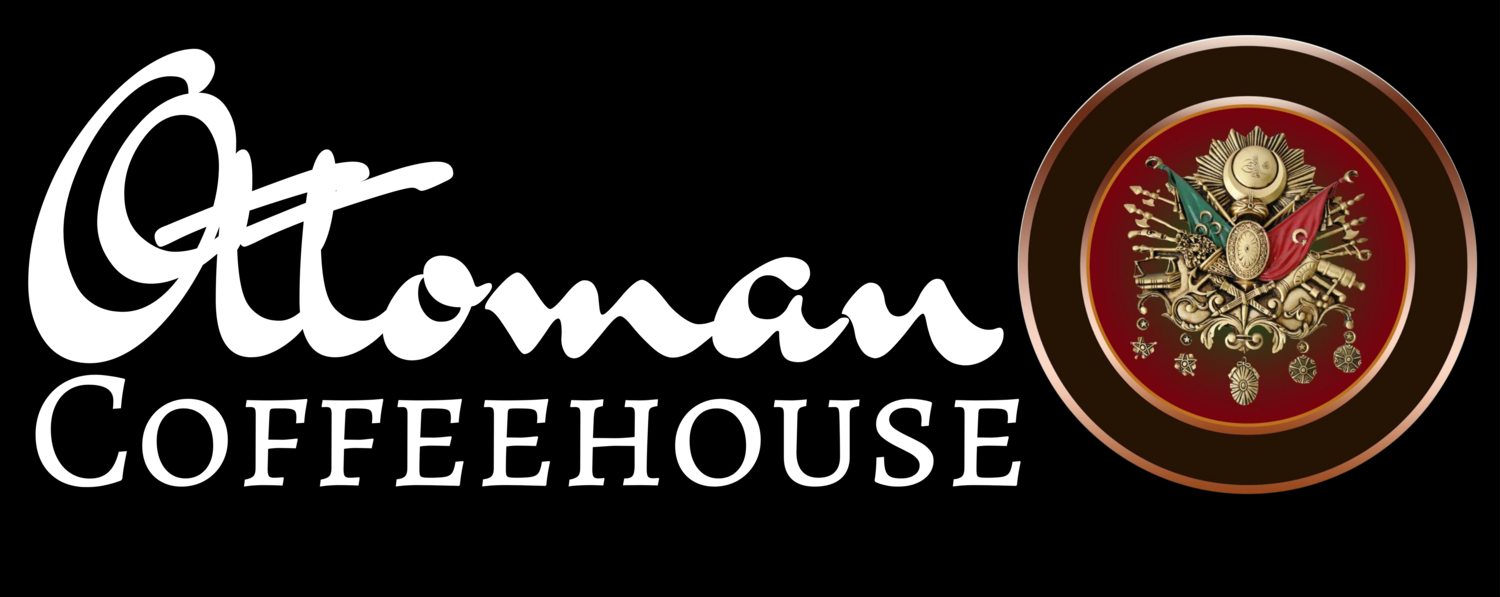"Brewing History: The Ottoman Empire's Coffee Legacy in Glasgow"
The legacy of coffee in the Ottoman Empire is a rich and inspiring story that lives on at Ottoman Coffeehouse in Glasgow. The golden age of coffee during the reigns of Sultan Abdul Aziz and Sultan Abdul Hamid II marked an era when coffee became central to social, cultural, and even political life. Coffeehouses, or kahvehane, were not just places to drink coffee but vibrant centers of community engagement, debate, art, and storytelling, a tradition we proudly bring to life in our café.
Coffee’s Journey Through the Ottoman Empire
Coffee arrived in the Ottoman Empire in the early 16th century, likely through Yemen, where the qahwa plant was cultivated. By the mid-16th century, it reached Istanbul, quickly becoming a beloved beverage across all strata of society. Coffeehouses became widespread, offering a space where people could gather, discuss poetry, politics, and philosophy, or simply enjoy music and games. They earned nicknames such as "schools of the wise," highlighting their cultural importance.
The term “Turkish coffee” originates from this period, referring to the unique preparation method of finely ground coffee beans simmered in a special pot called a cezve. This preparation, still celebrated today, is a hallmark of Ottoman Coffeehouse, where customers can savor traditional Turkish coffee served with a nod to this timeless ritual.
Coffee as a Symbol of Culture and Diplomacy
The Ottomans also played a key role in introducing coffee to Europe. When Ottoman forces laid siege to Vienna in 1683, legend has it that coffee beans left behind by the retreating army gave rise to Europe's first coffeehouses. This cultural exchange spread the fame of “Turkish coffee” far and wide, and it remains a symbol of Ottoman innovation and hospitality.
Coffee Under Sultan Abdul Hamid II
Sultan Abdul Hamid II’s love for coffee was legendary. His preference for Yemeni coffee underscored the Ottoman Empire's role in controlling key trade routes and securing the finest beans. His consumption of up to ten cups a day demonstrated coffee's centrality not only as a personal indulgence but also as a symbol of the empire's heritage. At Ottoman Coffeehouse, this legacy is honored by sourcing high-quality beans and carefully preparing each cup to reflect this royal tradition.
Coffee, Rituals, and Hospitality
In Ottoman society, coffee was more than a beverage, it was deeply woven into rituals and customs. One of the most notable traditions was the kahve falı, the art of fortune-telling from coffee grounds, which remains popular today. Additionally, coffee played a role in Ottoman hospitality, with guests traditionally greeted with a tray of coffee and sweets, a practice echoed at Ottoman Coffeehouse, where warm hospitality is at the heart of every customer experience.
Modern-Day Interpretation at Ottoman Coffeehouse
Ottoman Coffeehouse in Glasgow reimagines the historical coffeehouse as a space for modern connection and creativity. Drawing inspiration from the empire’s rich coffee culture, the café offers a blend of traditional Turkish coffee and contemporary specialty brews. The décor, featuring velvet cushions and intricate patterns, evokes the opulence of Ottoman design, while the community-centered approach mirrors the original purpose of coffeehouses as inclusive spaces for all.
Much like the Ottomans, who embraced innovation and cultural exchange, Ottoman Coffeehouse is committed to evolving with the times. Its plans to expand into coffee roasting and build relationships with farmers reflect the same spirit of trade and craftsmanship that defined the empire's coffee industry.
A Living Legacy
By honoring the history of coffee in the Ottoman Empire, Ottoman Coffeehouse not only serves exceptional coffee but also preserves a legacy that transcends time and geography. Each cup tells a story, connecting Glasgow to Istanbul, past to present, and people to each other, just as coffee did in the golden age of the Ottoman Empire.

